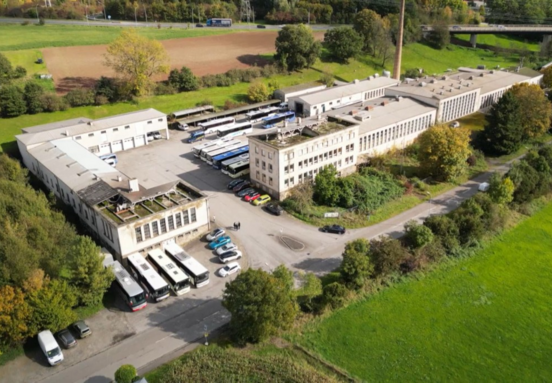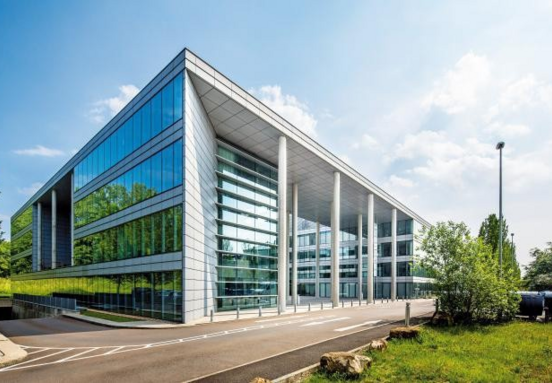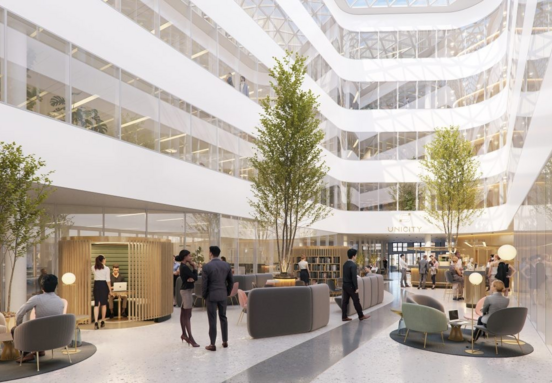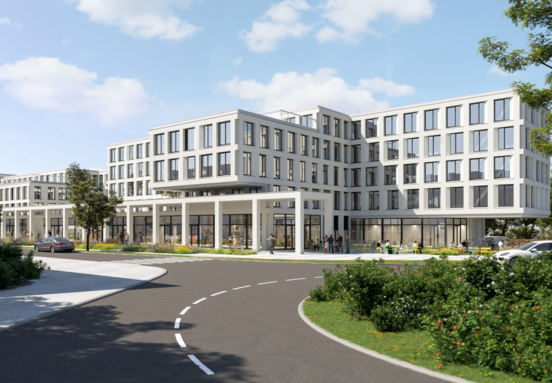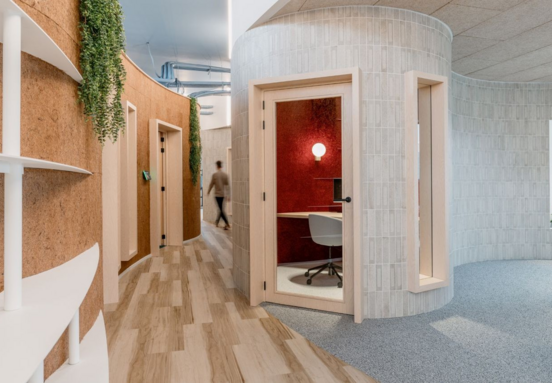The booming Luxembourg property market
Impressive growth
The Luxembourg property market has seen spectacular results in recent years. Between 2008 and 2022, total sales rose from €1,027 billion to almost €1,953 billion. This growth has been accompanied by a significant increase in the number of jobs in the sector, which has risen to almost 3,100. This vitality of the market, even in the face of crises, underlines the growing importance of real estate in the Luxembourg economy.
Market changes
The impact of digitalisation is undeniable. The emergence of technologies such as virtual tours, the use of artificial intelligence for market analysis and digital property management are profoundly changing the way real estate professionals interact with their clients. This phenomenon is also driving an increased demand for flexible offices and collaborative workspaces.
Professional Office Trends
The call for flexibility
There is a growing trend towards more flexible offices that meet the needs of the business. Companies are looking for spaces that encourage collaboration while allowing for remote working. From coworking spaces to modular offices, the emphasis is on flexibility to meet the demands of an ever-changing professional world.
The importance of location
Location remains a key factor in the choice of professional office space. Businesses prefer areas that are easily accessible, close to public transport and amenities. In addition, proximity to other companies and business centres is often a determining factor.
Sustainability at the heart of our developments
With growing awareness of environmental issues, sustainability has become an imperative in office design. Companies are looking for certified green buildings with advanced energy technologies and facilities designed to reduce their carbon footprint.
Outlook for warehouses
Logistics on the rise
Demand for warehouses has exploded in recent years, largely due to the growth of online commerce. Companies are looking to optimise their supply chains, making warehouses a strategic asset. The location, size and infrastructure of warehouses are therefore crucial criteria for logistics companies.
Automation and technological innovation
Another major trend is warehouse automation. The use of robots for inventory management and order processing increases operational efficiency. New technologies such as artificial intelligence and the Internet of Things are also changing the way warehouses are managed.
Multiservice areas
A new trend is also emerging: multi-service warehouses. These spaces not only provide storage capacity, but also integrate logistics services, offices and co-working spaces. This allows companies to centralise their operations while benefiting from a wide range of services.
Opportunities for property professionals
Training and skills development
With the rapid evolution of the sector, it is crucial for real estate professionals to train and acquire new skills. Mastering digital tools, analysing data and understanding new market trends are now essential skills.
Adapting to new client needs
Real estate professionals need to adapt to changing customer needs. Expectations of customer experience have risen, making a personalised approach essential. Offering tailored solutions using digital tools has become an imperative.
Innovation as the key to success
Innovation will be a growth driver for property professionals. Whether through digital management platforms, augmented reality tools for visits or predictive analytics solutions to anticipate trends, the adoption of new technologies is essential to remain competitive.
Conclusion
The real estate sector, particularly in Luxembourg, is at a crucial turning point. The move towards flexible professional offices and innovative warehouses, coupled with the rise of digital technologies, is opening up new prospects for market players. Real estate professionals must adapt to these changes in order to take advantage of the opportunities they present. By integrating a sustainable approach and focusing on personalising the customer experience, the sector can continue to thrive in the years to come.

